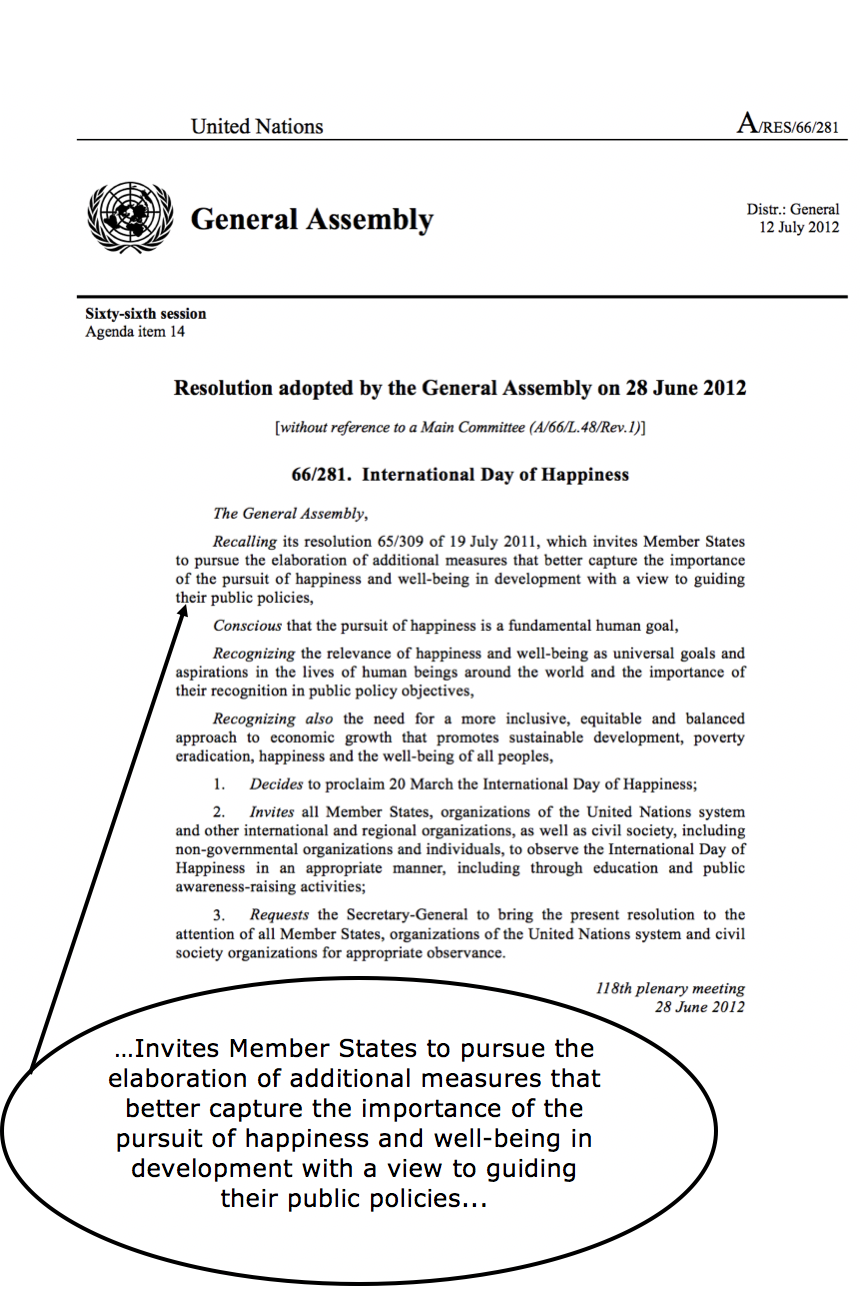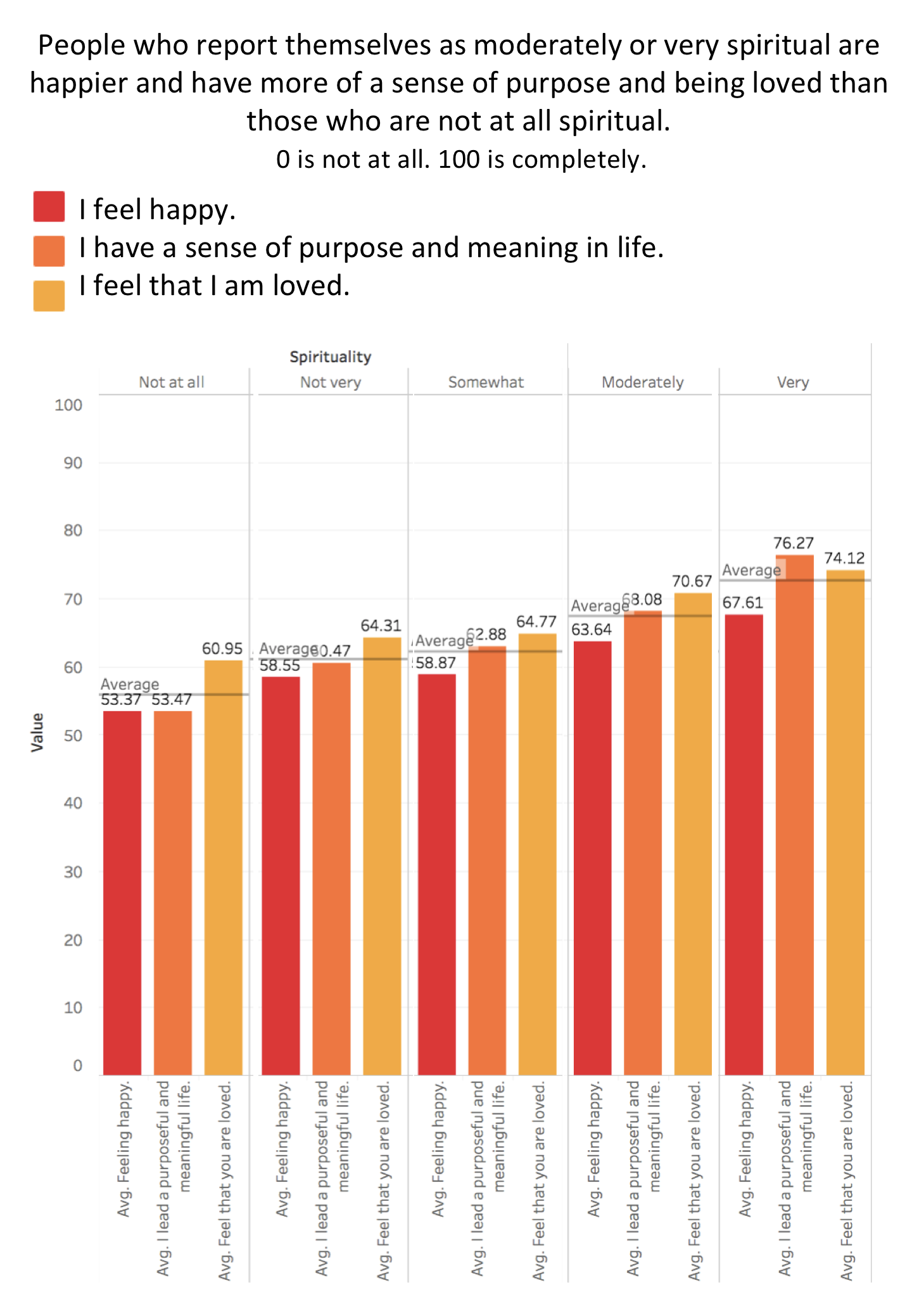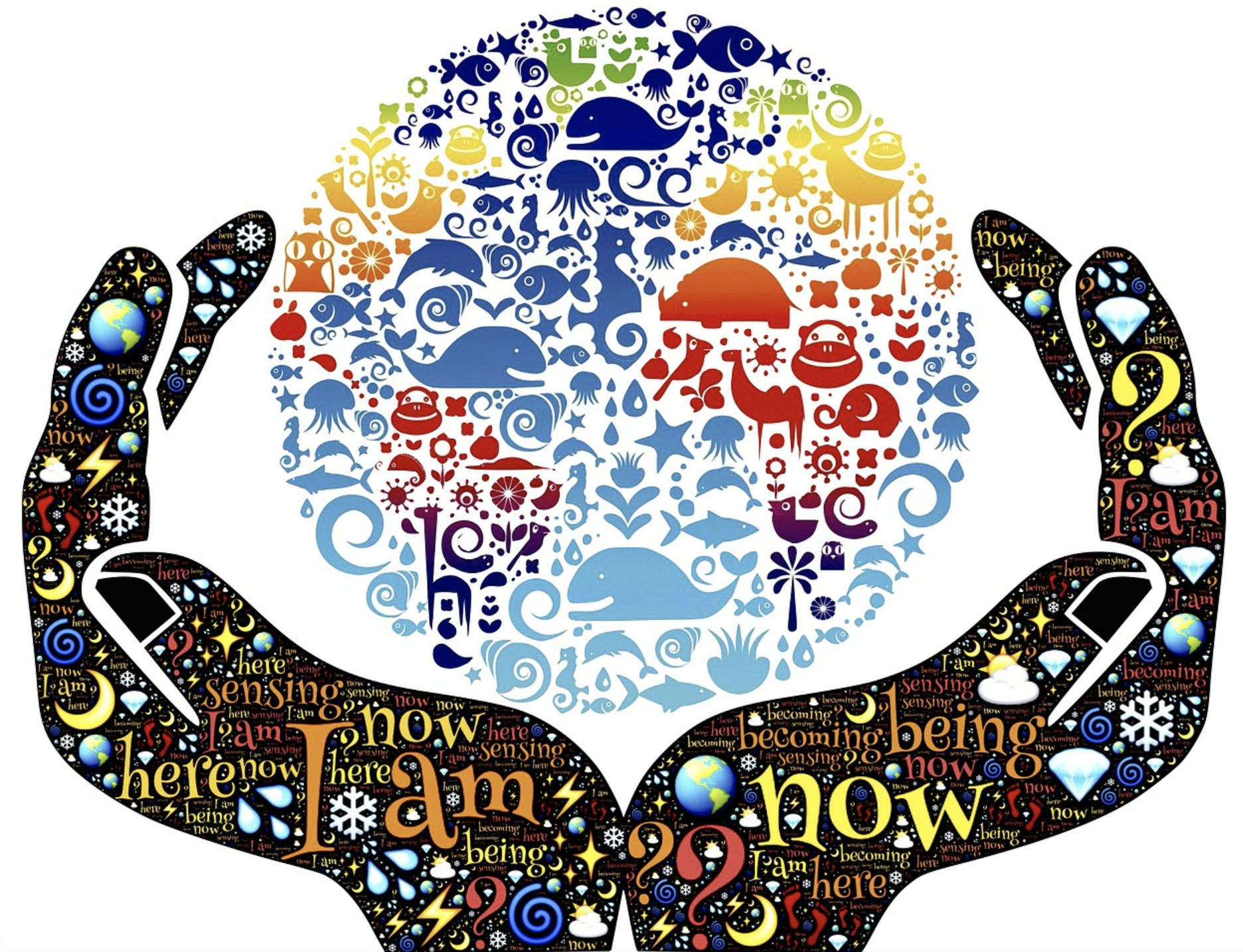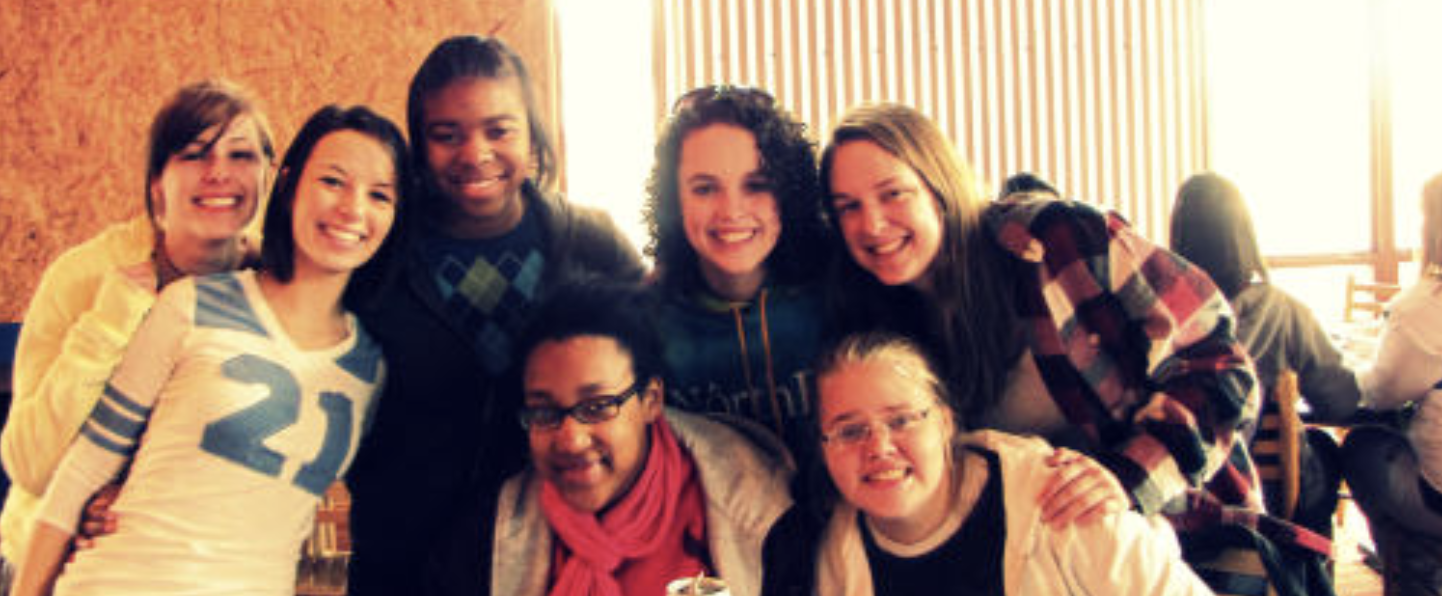International Day of Happiness is March 20th. It is a day to reflect on how far our nation has come is developing and using wider measures of well-being to guide public policy. In some countries, such as New Zealand, the United Kingdom, and Bhutan, there has been much progress. In others, like the United States, at the national level, the conversation has yet to begin about what wider measure of well-being and happiness are, much less how to develop and use them for public policy.

When researchers and policy makers talk about happiness, they
rarely mean the feeling of happiness. The feeling of happiness, called by researches
positive affect is considered just one of many components of what happiness is.
The term happiness is defined by most researchers and policy makers in the
happiness movement as flourishing, eudaimonia, or living a good life.
A good life is a life worth living. When you are living a good life, you feel
that your life has a sense of purpose and that you are making a difference. You are flourishing because you are living to
your full potential in your relationships, community, work and solitude. In terms
of Maslow’s hierarchy of needs, you are fully self-actualizing. Things in life
may be hard, and you may not always feel happy, but overall you would say your
life is good. This is the kind of happiness most researchers and policy makers
care about when they study or make policy for happiness. They want to understand
and create the circumstances that allow you to flourish.
That does not mean that how you feel right now, or in any other moment, does not matter. In fact, how you feel right now, and in the next moment, is the basis on which you decide if life is worth living. You know if something is right for you or gives you a sense of purpose by how you feel.

How you feel right now matters. Days, weeks and lives are full of moments. How you are feeling in this moment, and the next, and the next, will determine what you do in this moment, the next and the next. In a way, feelings are the basis of everything we do.
To bridge the divide between what researchers and policy makers mean by happiness and happy as a feeling, we looked at our Happiness Index data for feeling happy, and other dimensions of life. We wanted to see if gender, age, or educational level made a difference. It turns out that gender makes a little bit of difference sometimes, and so can age and educational level, but not that much.
We turned to a question we ask in the Happiness Index about spirituality. How spiritual do you consider yourself to be? The data revealed that people* who consider themselves to be spiritual are happier on many dimensions by up to 10 points on a 0-100 point scale. (*People who opted to take the Happiness Index survey, about 4500 in 2018. This is called a convenience sampling, and represents the state of the people who took the survey, and not necessarily all people in the US or elsewhere.)


If people who consider themselves very spiritual are happier, does this mean all people should be very spiritual? Our belief is that spirituality is a part of being human, and that there is not a need for people to become more spiritual, but there is a need to redefine spirituality.
A constricted definition of being very spiritual would entail being a member of a religious organization, going to worship at least once a week, and engaging in other activities daily, such as prayer, proselytizing or volunteering for an activity of the religious organization. Following this constricted definition to its extreme, this kind of very spiritual person believes that anyone who is not a member of their religion should be converted or is unworthy of life. This definition of spiritual has been over the centuries by people worldwide to spread wars, oppression and unhappiness.
This is not what we mean by the term spiritual.

An open definition of spirituality allows a sense of the spiritual to be found anywhere. The term spiritual in this context could be described in terms of feeling connected to something much bigger than the self, being in the flow, or having a deep sense of purpose and meaning, but ultimately it can’t be definitively describe with words. It is something that humans experience.
Our Happiness Proposal.
We propose that right now, you revolutionize your definition of spiritual.
Here are three ways to do that.

Right Now Experiment:
Assume that right now, in this moment, no matter how hard things may be, you can experience the spiritual. You can pull yourself out of your feelings, thoughts and sense of who you are, even if just for a second, and connect to all that is without it having to be a special or revelatory moment. It can just be this moment, right now. Maybe it’s a moment when the mind calms down, and a feeling of love or calm floods in. Maybe it’s a moment of feelings buzzing about like mad flies. It’s just a moment that is. We propose that as you experience more of these moments, you will get in touch with your innate sense of the spiritual. It’s not an easy task, but it is possible.

Nature Touch Experiment:
Go somewhere in nature and do something you love to do. Maybe you go into your back yard to garden. Maybe you go for a walk in a wooded park in your neighborhood. Maybe you go for a trip to the mountains, seashore, lake or river.
If you cannot go into nature, imagine when you were last in nature doing something you loved doing. Touch in with yourself. How do (or did) you feel? Do you feel that you are a part of something much bigger than yourself, and not separate from it? If not, imagine that you are an astronaut looking from the moon at the earth. Can you see the difference between any one person, tree or any other life form and the earth itself? See is you can experience this concept at an emotional rather than intellectual level.

Community Connection Experiment:
Spend time in a group of people with whom you share a bond. It may be a singing or dancing group, a book club, a mountaineering or bird watching group, a classroom, or a team at work. You may be a member of AA or Al Anon, or a member of a religious organization or any other entity. It may be just a few people or many. Fully engage in the activity that you do with that group. If you particularly like or do not like an individual in that group, let thoughts of that person go for the time. Observe how it feels to do something as part of a group. If you can, observe the feelings that arise in the body and thoughts that arise in the mind when you are fully engaged. If you can’t, cast your mind to the last time you had this experience.
These are three ways we offer for revolutionizing what it means to be spiritual. Our theory is that by getting into touch with our spiritual nature, we will love and care more for each other, our mother earth, and ourselves. We will be happier, in all senses of the word.
What do you think? Email [email protected] with your thoughts, insights and advice for other readers.
Join on March 20th, the Happy International Day of Happiness for the World Happiness Virtual Agora at 9 am PT when the Happiness Alliance will talk about how to become a Happiness Movement Leader in your community.


